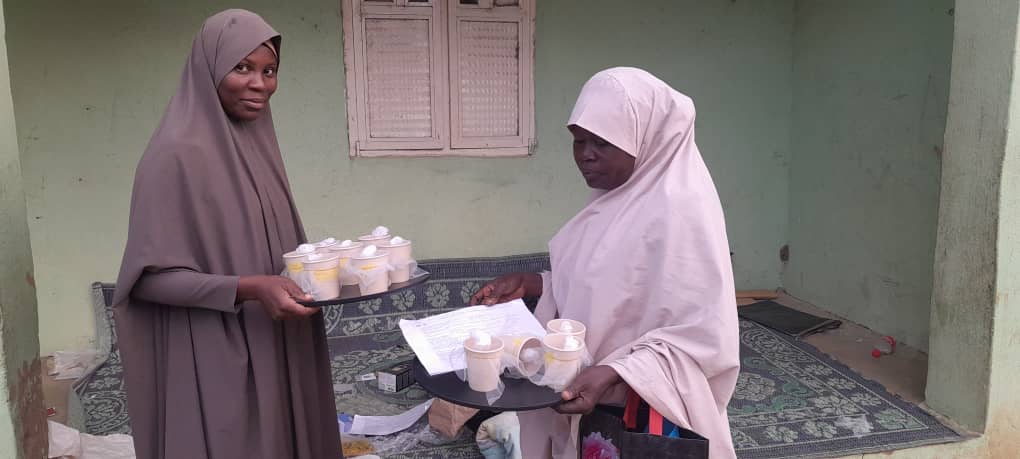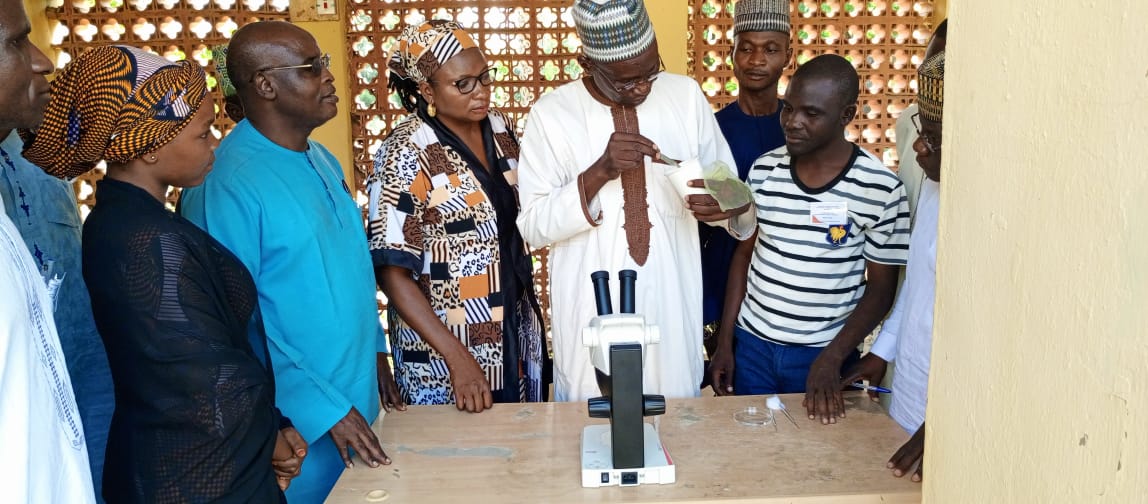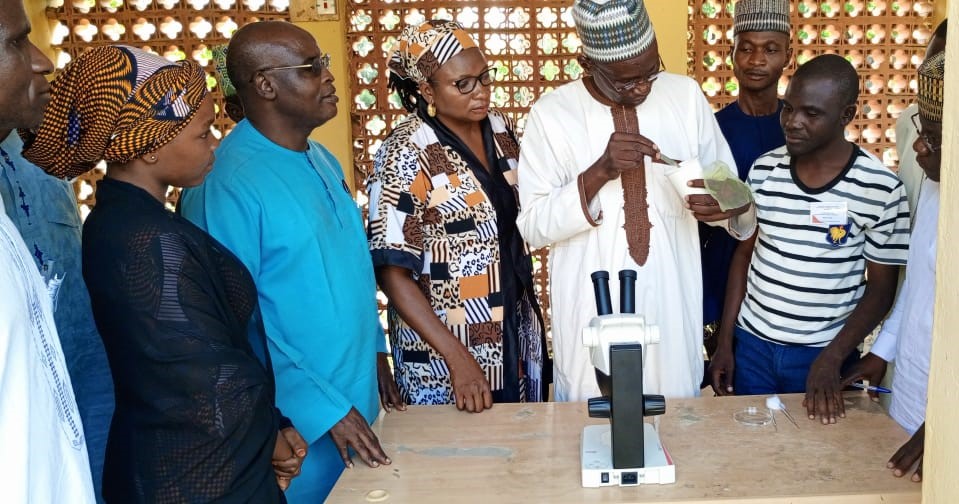In Nigeria, communities have historically relied on information about mosquitoes, malaria parasites, and malaria transmission from government or aid groups. Now for the first time, community members, such as health worker Rashida Umar, are taking charge of understanding and teaching others about the complex mosquito populations in their communities, how to control them, and ways to protect themselves.

Rashida is one of five community health workers and six community residents recently selected by the local government. These community collectors were trained to conduct community-based entomological monitoring in the Dass Local Government Area of Bauchi State, Nigeria by the U.S. President’s Malaria Initiative Evolving Vector Control to Fight Malaria Project (PMI Evolve). This is part of a groundbreaking pilot that PMI Evolve launched in October 2023 to enhance sustainability by shifting away from periodic mosquito sampling conducted by visiting experts, and instead relying on collections by community members in the places they live. Rashida was chosen because she has gained experience in mosquito collection methods under a prior PMI project.
“I am happy to see that PMI Evolve Nigeria is looking to change towards a community-based approach,” says Rashida. “It truly helps us in the community take control of our situation. PMI Evolve Nigeria has done an excellent job recognizing and empowering women to take part in the program and providing us with the necessary resources. I am excited to share this experience with my colleagues helping bring an end to malaria.”
According to PMI Evolve Vector Monitoring Specialist Grace Yina, engaging women health workers such as Rashida in this pilot has been critical to its success and sustainability in the highly conservative environment of northern Nigeria. “Based on socio-cultural beliefs, women are generally allowed into neighbor’s houses where the ‘Bashiga’ policy exists. This policy means that men are not allowed to enter households of non-related women, even if close neighbors,” says Grace. “The involvement of women in mosquito surveillance, especially at the community level, paves the way for greater acceptance and access, which allows them to collect the mosquito samples we need,” says Grace.

Rashida and the other community collectors received comprehensive lessons in mosquito biology, collection techniques, species identification, and insecticide resistance monitoring methods, and are now conducting mosquito collections every other month. PMI Evolve Nigeria is partnering with Bauchi State, Bauchi State Ministry of Health, and local government authorities who have expressed their enthusiastic support by selecting community collectors and mobilizing community leaders and health personnel to increase acceptance by the community members. To ensure adherence to entomological protocols, supervisors from local government and university partners are providing oversight.
Equally important, the pilot is forging new connections between the environmental and community health workers, with members of both professions appreciating the role of the other in health care delivery within the communities they serve. Their efforts are also shifting public perceptions that mosquito collection and vector control is confined to specialists in entomology.
As the pilot progresses, the communities themselves are becoming more alert to mosquito threats, receptive to interventions, and eager to stamp out transmission for good, which has further led to community collectors taking greater ownership, proposing improvements, and advocating for resources, to make the work sustainable.
Nigeria’s ambitious community-based malaria collection pilot demonstrates the power of decentralized processes to drive local action. When community members such as Rashida Umar lead the way, communities are empowered, community members better understand the disease, and eliminating malaria finally seems within reach.


